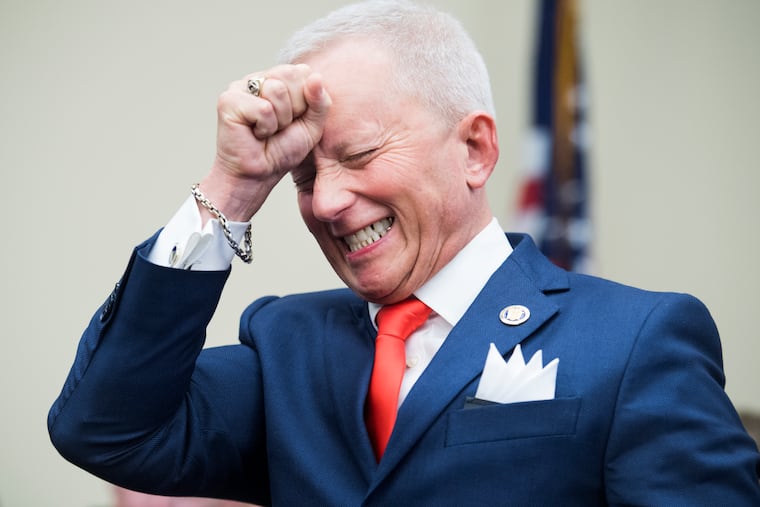For party switch, N.J. Rep. Jeff Van Drew owes voters an apology — and individual donors their money back | Editorial
Van Drew owes New Jersey voters an apology -- and he owes donors, especially small ones, their money back.

History is not going to remember Jeff Van Drew as a profile in courage. The freshman Democrat from Cape May won the New Jersey 2nd District seat in Congress as a part of the blue wave of the 2018 midterm, when Democratic turnout doubled from the 2014 midterm. During that campaign, Van Drew raised $1.9 million — about half in individual donations, and close to $120,000 in small donations, according to Federal Election Committee data.
As a show of gratitude, Van Drew announced last week his intention to switch parties and become a Republican after less than a year in office. Voter fraud might be rare, but Van Drew has essentially defrauded people who voted him in.
Van Drew is not becoming a Republican because he is a conservative who found an ideological home in President Donald Trump’s GOP. On every substantive issue that has come before Congress in the past year, Van Drew disagreed with the president and his Republican colleagues in Congress. Of 57 roll-call votes cast, Van Drew voted in line with Trump only four times — with three of those votes related to impeachment.
If Van Drew doesn’t believe that Trump should be impeached, he has a right to vote his conscience. What he shouldn’t have the right to do is single-handedly reverse the results of an election. Given recent polls that show 60% of Democratic primary voters in his district would prefer to have someone else represent them, it reads as a blatant effort at self-preservation.
» READ MORE: Impeach President Donald Trump | Philadelphia Inquirer Editorial Board
This betrayal of voters will go beyond party label. History suggests Van Drew is likely to dramatically change his voting pattern. A review of the voting records of 198 party switchers in Congresses over 158 years found that when a member of a major party switches to the other major party amid high political polarization — a fitting descriptor for current times — significant changes in roll-call behavior follow.
In the span of American history, switching parties is rare, but it happens. In July, after breaking with his party over impeachment, Michigan Rep. Justin Amash left the GOP and became an independent. If Van Drew felt that he can no longer be a Democrat, he could have followed Amash’s lead and become an independent.
» READ MORE: Justin Amash’s independence shows voters they don’t have to settle for binary choice | George Will
Perhaps even better would have been to follow the footsteps of former Texas representative and senator Phil Gramm. In 1983, a few months after winning his third term in Congress as a Democrat, Gramm resigned because of a dispute with his party and ran — and won — as a Republican in the special election for the seat that he vacated. If Van Drew genuinely believes his constituents want him to represent them as a Republican, he should do the same and let them decide.
Although about 20 democracies worldwide have laws to prevent legislators from switching parties midterm, it’s hard to envision such a law in the U.S. In switching parties, Van Drew disrespected New Jersey voters. He owes them an apology — and to those who donated to his 2018 campaign in hopes to turn the district blue, he owes them their money back.